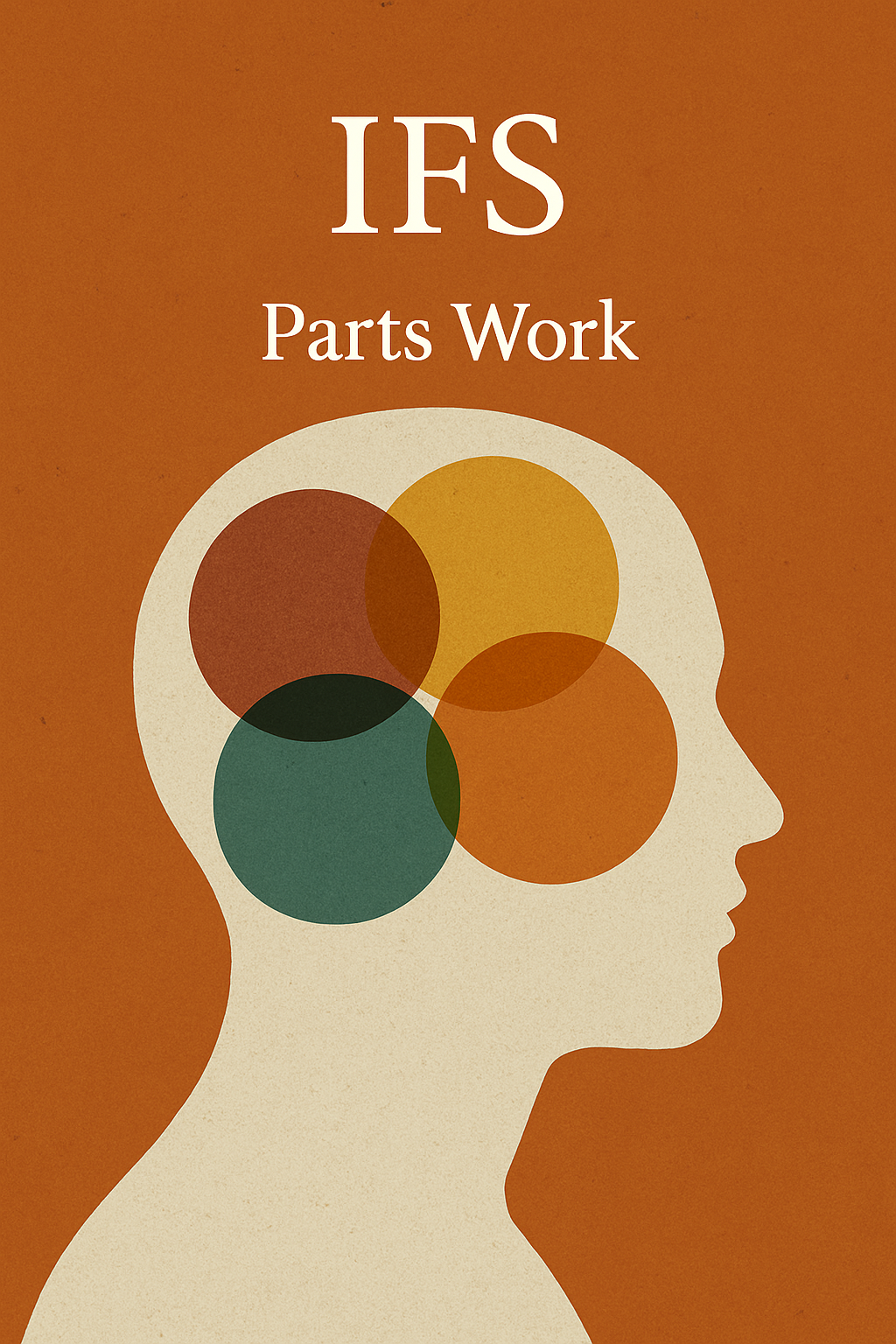Find the Right Fit For Your Needs
Explore the populations I serve and my specialized knowledge.
Deep Dive
Explore My Specialty Populations and Modalities
Non-Monogamy
Mindfulness and Somatic Therapy
Sex Therapy-Kink, Sex Work, Intimacy Issues, ED, & More
Narrative Therapy
Neurodivergence
IFS-Internal Family Systems Theory
LGBTQ+
EFT-Emotion Focused Couples Theapy
Common Issues Treated in my Practice
-
Relationship and Couple Concerns
-
Communication problems
-
Conflict resolution
-
Infidelity and trust issues
-
Intimacy and sexual difficulties
-
Divorce, separation, and co-parenting
- Alternative relationship styles and kink
- Sex therapy
-
-
Family Concerns
-
Parenting challenges
-
Blended family adjustment
-
Intergenerational conflict
-
Cultural and value differences
-
Supporting children and teens through transitions
- Supporting LGBTQ+ children and coming out transitions
- Behavioral Issues
-
-
Mental Health
-
Anxiety (generalized anxiety, panic, phobias, OCD)
-
Depressive
-
Bipolar and mood disorders
-
Trauma and PTSD
- Abuse healing: sexual, physical, and verbal
-
Personality disorders (Borderline, Avoidant, etc.)
-
Eating disorders
- Work and Life stressor challenges
- Peer challenges and stresses
- Bullying
- Cutting and self harm behaviors
- Suicidal Ideation
-
-
Behavioral and Developmental Concerns
-
ADHD and impulse-control issues
-
Autism spectrum-related concerns
-
Child and adolescent behavioral difficulties
-
School or peer-related challenges
-
-
Grief, Loss, and Life Transitions
-
Death of a loved one
-
Chronic illness or disability
-
Career or life changes
-
Aging and caregiving stress
-
-
Identity and Personal Growth
-
Self-esteem and self-worth
- Body image
-
LGBTQ+ affirming care and gender identity exploration
-
Cultural and racial identity
-
Spiritual or existential concerns
-
-
Addictions and Compulsions
-
Substance use disorders that do not require in-patient treatment
-
Gambling addiction
-
Compulsive behaviors (e.g., sex, pornography, spending)
-
Is Telehealth Right for Me?
What Research Shows About Telehealth
Research consistently shows that telehealth therapy is just as effective as in-person therapy for most mental health concerns, including anxiety, depression, relationship issues, and trauma. Studies highlight that clients report similar satisfaction, progress, and connection with their therapist when using secure video platforms. In fact, many people find it easier to open up from the comfort of their own space, and telehealth has been proven to improve access to care by removing barriers like commute times, childcare, or living far from providers.
Pros and Cons of Telehealth
Telehealth offers major benefits such as convenience, flexibility, and access to therapists regardless of location. It can reduce stress around scheduling and make therapy more consistent, since clients can attend sessions even when traveling or busy. Many also feel more comfortable sharing vulnerably from home. However, telehealth does have some drawbacks: it relies on stable internet access, may feel less personal for some clients, and does not allow for certain in-person therapeutic techniques. Additionally, privacy can be harder to maintain if a client doesn’t have a confidential space at home.

Who is Not a Good Candidate for Telehealth
While telehealth works well for most clients, there are important exceptions. It is not recommended for individuals in immediate crisis or with active suicidal Plans, since they need higher levels of in-person or emergency support. It may also be less appropriate for clients with severe, unmanaged psychiatric conditions that require close monitoring, or for young children under about age six who benefit more from in-person, play-based approaches. Finally, clients without reliable technology or a private, safe space to talk may not get the full benefit of telehealth sessions. Telehealth is also not right for couples with current physical abuse, as it can heighten emotions and increase risk in the short term.
Frequently Asked Questions
Does attending therapy mean I'm crazy?
There is a lot of stigma and pre-conceived notions about therapy and mental health out there, but no, you are not ‘crazy’ if you choose to attend therapy. I view therapy is a structured time and place with trained support for you to grow and achieve your goals. Mental health, like physical health, takes maintenance and attention.
What if I need to reschedule a session?
No problem! You can reschedule up to 48 hours in advance without any fees. Life happens—we get it.
Can you be my therapist while I travel to or live in another state?
No– Unfortunately while telehealth is now a popular and viable option for therapy, legislation and licensure is still by state. I can only see Nevada State residents who are physically present in the state at this time. As I gain other state licenses I will keep you posted!
What ages of kids do you work with?
I see ages 6 and above but I will individually decide if your child in appropriate for my practice.
Are our sessions confidential?
Everything we discuss stays between us with only a few exceptions: threat of harm to self or others, abuse of minors and elders, and where mandated to break privacy by court mandate or state laws. Your privacy and trust mean everything. I work on an encrypted professional telehealth platform and am happy to have an in depth conversation about confidentiality and privacy.
Do you take my insurance? Can you provide a superbill?
Currently I see insurance clients through my primary supervisor and his practice Infinite Wellness and Recovery. For a full list of their most current coverage, please visit their website iwrgrp.com or call them to verify your plan. If you prefer to be cash pay I can provide sliding scale if needed and a superbill to provide to your insurance company. I do my best to make therapy affordable for everyone!
Do I really need counseling?
Therapy isn’t only for a crisis—it’s for anyone ready to grow, heal, or make a meaningful change. Whether you’re struggling with conflict, stress, anxiety, grief, trauma, or simply feeling stuck, therapy provides a safe and supportive space to work through it. If you’re asking yourself this question, chances are you’re ready to explore what’s possible with the right support.
Does counseling really work?
Yes. Research consistently shows that therapy is highly effective. In fact, studies show that people who actively engage in therapy—by being open, curious, and committed—see the most meaningful results. For many concerns, therapy can be just as effective as medication, and lasting change often comes from staying in therapy until your goals are met rather than stopping when insurance coverage ends. Having the right fit in a therapist and a readyness for change are important so make sure to shop around for someone that feels right to YOU!
What are your hours?
My hours do change so please schedule a free call for updated availability. Currently most availability is Monday-Wednesday 12pm-8pm, Telehealth Only.
What are your fees? How long are sessions?
My current cash pay fee is $120/session and I work with clients to determine if sliding scale is needed and available. Sessions are typically 50 minutes but cash pay clients occassionally opt for deep-dive sessions which can be longer.
What makes therapy successful?
The short answer—you. Therapy works best when you are willing to show up authentically, set goals, and explore the patterns keeping you stuck. My role is to guide, support, and challenge you with compassion. When we work together as a team, therapy can create deep, lasting change.
How many sessions do most clients attend?
It depends on your goals. Some people come for short-term support around a specific issue, while others stay longer to do deeper work. We’ll collaborate on a plan that makes sense for you.
Can you prescribe medication?
No. As a therapist, I do not prescribe medication. If medication is something you’d like to explore, I can refer you to a psychiatrist or medical provider for evaluation.
Are you a gender affirming therapist?
Yes, I am fully supportive of the full gender spectrum and practice gender-affirming care.







